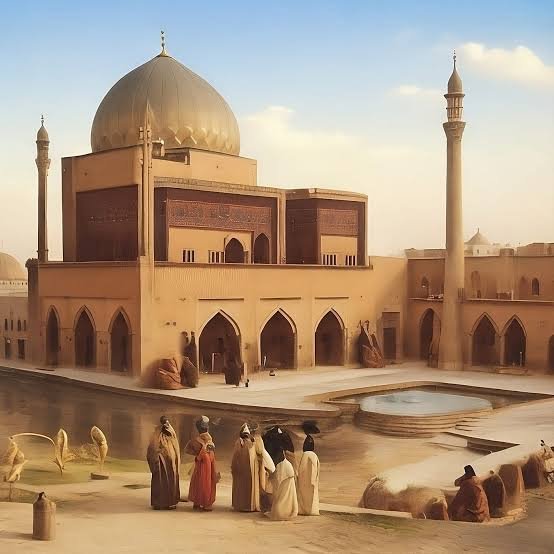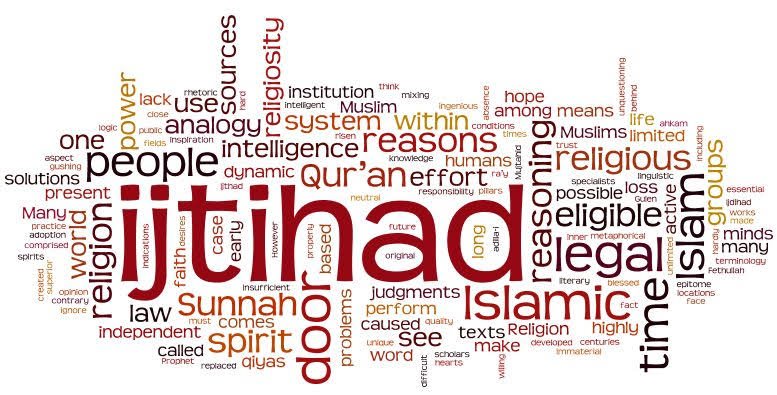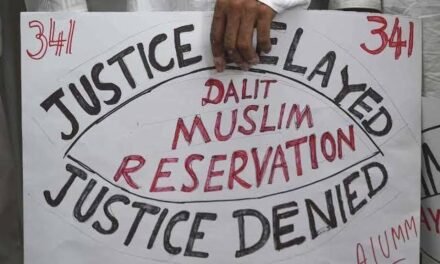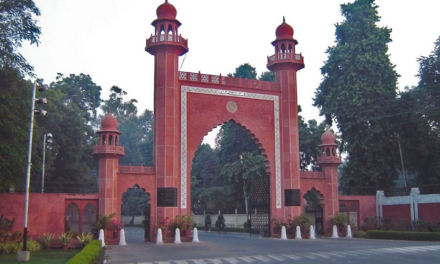~Uzma Khatoon
Introduction
Muslims regard the Quran as Muhammad’s most important miracle, a proof of his prophethood, and the culmination of a series of divine messages starting with those revealed to Adam, including the Tawrat, the Zabur (Psalms) and the Injil (Gospel). The Quran describes itself as a book of guidance for humankind ( 2:185 ). It sometimes offers detailed accounts of specific historical events, and it often emphasizes the moral significance of an event over its narrative sequence. Supplementing the Quran with explanations for some cryptic Quranic narratives and rulings that also provide the basis for Islamic law in most denominations of Islam. It is clearly mentioned in the Qur’an: And those who strive ( jahadu) in us (our cause) we surely guide them in our path” (al-‘ – ‘Ankabut: 69).
Ijtihad is a commonly accepted concept in Islam, and one cannot deny its legitimacy. Islam is a complete code of life which caters to the spiritual, moral and material needs of humans beyond time and spice. It gave new principles and laws acutely needed by the people. To respond to the changing needs of societies, Muslim jurists and scholars have relied on the well-established process of innovation, Ijtihad. This process is based not only on the Qur’an and religious tradition (sunnah) but also on reason, deduction, and prioritization. Ijtihad is also an Islamic legal term that means “independent reasoning” or “the utmost effort an individual can put forth in an activity. It is through the institution of Ijtihad that the attainment of the aims of Islam is not only possible but is also actualized. Today, there are many different opinions surrounding the role of Ijtihad and the qualification of Mujtahid in modern society.
The Qur’an has given the fundamental education and knowledge but the Muslim scholars must interpret this fundamental knowledge wisely in accordance with the spirit of the time in which we live. Shariah (Islamic law) is subject to interpretation in order to meet the ever-changing needs of society. Its guiding principles were designed to protect the individual and the society so that it was not established as a set of fixed rules. To respond to the changing needs of Muslim societies, Muslim jurists and scholars have relied on the well-established process of change, ijtihad. This process is based not only on the holy book (Qur’an) and religious tradition (Sunna) but also on reason, deduction, and prioritization. Ijtihad is practised by the jurisprudent to discover secondary divine legislation (laws).
Concept of Ijtihad
Ijtihād (Arabic: “effort”) in Islamic law, the independent or original interpretation of problems not precisely covered by the Quran, Hadith (traditions concerning the Prophet Muhammad’s life and utterances), and imam (scholarly consensus). The word derives from the three-letter Arabic verbal root of د-ه-ج J–H–D (jihada,’ struggle’); in its literal meaning, the word refers to the effort, physical or mental, expended in a particular activity. In its technical sense, Ijtihad can be defined as a “process of legal reasoning and hermeneutics through which the jurist-mujahidin derives rationalizes law on the basis of the Qur’an and the Sunna”. In the early Muslim community, every adequately qualified jurist had the right to exercise such original thinking, mainly in the form of raʾy (personal judgment) and qiyās (analogical reasoning), and those who did so were termed mujtahids.
But with the crystallization of legal schools (madhhabs) under the ʿAbbāsids (reigned 750–1258), jurists of the majority Sunni branch of Islam came to be associated with one or another of the schools of law and formulated their legal thought within the framework of their school’s interpretive principles and against the backdrop of its doctrinal precedent. Over time, individuals’ qualifications to exercise ijtihād were organized into levels, ranging from the absolute mujtahid, who was bound by no precedent and free to develop his own interpretive principles, to the absolute muqallid (“follower,” “layperson”), who was required to follow authoritative jurists unquestioningly.

The process of ijtihad allowed Muslim and Muslim societies to continually adapt in the face of changing societal conditions and new advances in knowledge. As it constitutes a bridge between eternally valid divine injunctions and time-specific requirements of every age, it is the key to providing an Islamic interpretation of modern developments and circumstances. Moreover, it also serves as a means through which religion can become intricately interwoven with politics. Scholars considered the time, place norms and prevailing conditions while rendering their religious advice and opinions. Ijtihad enabled Muslims to be flexible and to learn from other cultures and civilizations.
Without the process of jihad, a faithful Muslim will find himself in a dilemma. Unfortunately, the autocratic behaviour of Muslim caliphs and rationalist movements lead the Muslims to adopt a more conservative stance in an attempt to preserve traditional values and institutions. As a result, many scholars became inclined to view jihad negatively, and it was assumed fit for the Muslims to declare the sharia complete, thus announcing the closure of the gate of jihad. This closure led the Muslims towards a gradual decline from being a superpower to mere disoriented people subjected to humiliation in every field of life only because they stopped questioning and started on a way of blind following (tailed), and tailed itself is a symbol of stagnation. Closing the gate of jihad turns the great thinkers into idols.
Muslim thinkers from 18th to 20th century were on the view that to regain the glory and to revive Islam, Muslim must return to critical thinking and a process of adapting to the modern world and the key to these remains in the practice of jihad. But, a number of questions arise here.
How can the door of jihad be reopened? • Was it really closed? • Why did Muslim scholars raise the subject of the gate of jihad? • Why did Muslims fail to perform jihad effectively to meet the challenges of the contemporary world? • How can it be used to address the needs of Muslim societies with reference to the contemporary world?
Ijtihad in the Early Period
The practice of jihad remained the norm rather than the exception during the era of Dhulia-e-Rashun and the lifetime of the companions of the Prophet (PBUH). These companions of Prophet Muhammad (PBUH) were in a position to interpret and apply the principles of sunnah with the least possible error. Therefore, jihad that was performed by the Prophet’s companions is not subject to reinterpretation. Unfortunately, a few centuries ago, the activity of jihad had been exploited, which led the Muslim scholars to a rigid reading of the Qur’an. This was mainly because of the behaviour of the rationalist movement and Muslim caliphs, which became increasingly autocratic as they began to use their power negatively to fulfil their interests.
As a result, many scholars came to view jihad negatively. Scholars of all schools felt that all essential questions had been thoroughly discussed and finally settled, and a consensus gradually established itself to the effect from that time onwards, no one might be deemed to have the necessary qualification for independent reasoning in law and that all future activity would have to be confined to the explanation, application, and at the most, interpretation of the doctrine as it had been laid down once and for all. From the moment the gate of jihad was considered to be closed in the views of many scholars, the concept of tailed (stagnation, blind imitation) was introduced in the world of Islam. The exercise of independent judgment in the early days produced a rich flowering of scientific activity and discovery, but as soon as the gate of jihad was subsequently closed, a long period followed, during which Muslim science consisted entirely of compilation and repetition.

The world of Islam after about six centuries of intellectual advancement, during which it produced a most illustrious galaxy of scholars, began to decline. With reference to this, Afghani was of the view that the blame for our decline does not lie elsewhere; it lies on us because we ceased to be dynamic as the Qur’an wanted us to be. Muslims became static and began to rest on their laurels. The Qur’an called on us to engage in a continuous struggle. While we began to think that we had reached the limit and began to rest intellectually while others were marching on. The Holy Prophet (PBUH) had given the basic principles only to the Muslims, which are in the Holy Qur’an and His own example (Sunni). He had directed the Muslims to use their judgment in working out details according to the changing circumstances and rising exigencies. For this, as the benefit of the whole amah lies in the activity of jihad,
Ijtihad in the Modern Period
The decline of Muslims started gradually from superpower to mere disoriented people and became subject to humiliation in every field of life, and this is only because they stopped questioning and started on a way of blind following or in other words, they stopped critical thinking in order to meet the challenges of the modern world. As human society is a developing entity and human actions, relationships, and activities are ever-increasing and ever-expanding, many things are invented that did not exist before. Therefore, the process of jihad is responsible for catering to all the needs of human society and providing answers to all questions which may arise. Without the process of jihad, many human activities are difficult to develop in the sphere of Islamic life.
The old interpretations no longer provide suitable answers to the difficult questions faced by the Muslim world. Thus, Muslim must try to deal with the stagnation existing within their minds. They must try to reinterpret (but within some limitations), which can give them suitable answers with reference to contemporary challenges. As it seems impossible for the Muslim to get rid of all existing problems and go back to the caliphate, which can resolve the issue of authority. For the better performance of jihad Afghani recommended that ulna should establish regional centers in the various countries where jihad could be exercised for the guidance of common man. These regional centers should be connected with a global center, which may be established in any one of the holy places. According to him the representative of various centers may foregather to exercise jihad for the whole Uma and will prepare it to withstand foreign challenges.
In the middle of the eighteenth century, Shah Wail Allah started a movement towards the reinstatement of reason and individual judgment in the affairs of the religion and politics of the Muslim community in the Indo-Pakistan subcontinent. His aim was none other than to make Muslim ummah religiously and politically strong by asking them to come to the Qur’an and the Sunnah, not to blindly stick to the established four schools without considering the change and the demands of the people’s needs. However, almost two centuries later, because not many Muslim scholars responded to Wali Allah’s call for ijtihad seriously, consequently, the condition of the Muslims of the subcontinent remained relatively unchanged intellectually, economically and politically. It was, therefore, that Iqbal himself, in the early twentieth century, reasserted the call of ijtihad, which he termed the principle of movement.
Since the world is never unchanged, the call of ijtihad to Muslim scholars should be voiced over and over again. The call of ijtihad itself should be in accordance with the demand of time. However, according to him, this is not enough until those scholars prove the call to action and until they can draw ideals to practical aspects. Both scholars considered taqlid retrograde to the true nature of Islamic teachings. For them, creative interpretation or ijtihad is an integral part of Islam. Both of them, therefore, encouraged Muslim scholars to exercise ijtihad in accordance with their respective demands. In this modern era, ijtihad should be carried out collectively, as Iqbal suggested, instead of individual ijtihad, as suggested by Wali Allah. For the life of dynamism of the modern era, places complicated problems before the Muslim ummah. The problems that require the full attention of Muslim scholars of various disciplines from social sciences to exact sciences. These scholars, in turn, will sit together to discuss the problems and give their way out or solution comprehensively.
As far as the idea of ijtihad is concerned, neither of the scholars thinks that it could be used unrestrictively to legitimise everything done by Muslim scholars. Ijtihad should not contradict with al-Nash. It is. Therefore, they were of the opinion that since ijtihad means exerting individual judgment in order to formulate a legal opinion on issues not explicitly defined in al-Nas, its connection with the principles of Islamic jurisprudence should be viewed in terms of compatibility with and conformity to the principles themselves.

Muslims must return to critical thinking and a process of adapting to the modern world, and the key to this remains is the practice of Ijtihad. Some of the prominent traditional reformers who argued to renew Ijtihad were Shah Wali Allah (d. 1765), Muhammad ibn Ali al-Shawkani (d. 1832), and Muhammad ibn Ali al-Sanusi (d. 1859). Their emphasis on the centrality of Ijtihad amounted to a criticism of Taqlid. They argued that for the learned jurists, the ultimate authorities did not lie in the doctrines of past masters but rather in the Qur’an and the Sunnah.
Modern Muslim scholars like Jamal al-Din Afghani and his disciples Shaykh Muhammad Abduh and Rashid Ridda were the most prominent figures who promoted the Ijtihad, and they worked to reopen its doors. They claimed that to perceive the true essence of Islam; one must free oneself from Taqlid and blind dependence on the traditional interpretations of the four classical schools of thought and return to the religion of the forefathers (Salaf). A similar stance was adopted in the Indian context by some intellectuals like Sir Syed Ahmed Khan, Syed Amir Ali, Maulvi Cheragh Ali and Allama Iqbal. They declared that the closing of the door of Ijtihad is pure fiction, suggested partly by the crystallization of legal thought in Islam and partly by the intellectual laziness which, especially in the period of spiritual decay, turns great thinkers into idols.
Conclusion
The scope of Ijtihad does not include the matters of Aqeeda (belief) and Ibadath (devotional act). Ijtihad does not occur except in the Muhamalath (transactions) or Ahkaam Shariah, whose evidence(Daleel)is speculative (Zanni) and not when the rule is decisive (qat’i). The scope of Ijtihad includes most things, including definitive matters such as the relations between nation-states, multiplied society and other issues on socio-political and economic matters in worldly affairs. It allows Islam to be reformed in order to apply to the modern age
Ijtihad is a prerequisite for the survival of Islamic Civilization in the modern world. In a fast-changing world, recourse to Ijtihad is a must. However, there is no need for Ijtihad as far as basic beliefs and Ibadats (devotional acts) are concerned, but in other matters of changed lifestyles, Ijtihad is a great necessity. It is particularly important in relation to the status of women, relations between different Muslim Sects, relations between Muslims and non-Muslims, the role of Muslims in non-Muslim societies, and Islamic economic theories, etc…. Unfortunately, in the recent past, restrictions on the practice of Ijtihad were imposed both by religious establishments with vested interest and by repressive governments in Muslim countries opposed to democracy and freedom of inquiry. It has to be understood that freedom of expression is essential to the practice of Ijtihad, through which reconciliation of Islam and modernity, as well as reform of the educational system, can be successfully accomplished. Without the tool of Ijtihad, the gap between Islamic theory or aspirations and contemporary reality or constraints becomes impossible to bridge.
The biggest tragedy of Muslim society is that we are looking for solutions to the present issues using past methods. Blind faith is still practised as an understructure in Muslim society even today while denying and neglecting the significance of reasoning. That’s why Muslim society is lying rotten like the water of a pit, and there is no space for new ideas. Fault Lines and limitations of the Islamic world, failure to deal with relevant matters in question in the proper way, issuing unproven and irrational fatwas, prejudiced attitude towards new ideas- all these are the consequences of closing the window through which light of reasoning can come inside.
Dr. Uzma Khatoon
Department of Islamic Studies, Aligarh Muslim University, Aligarh
Email: uzmaalig@yahoo.com




